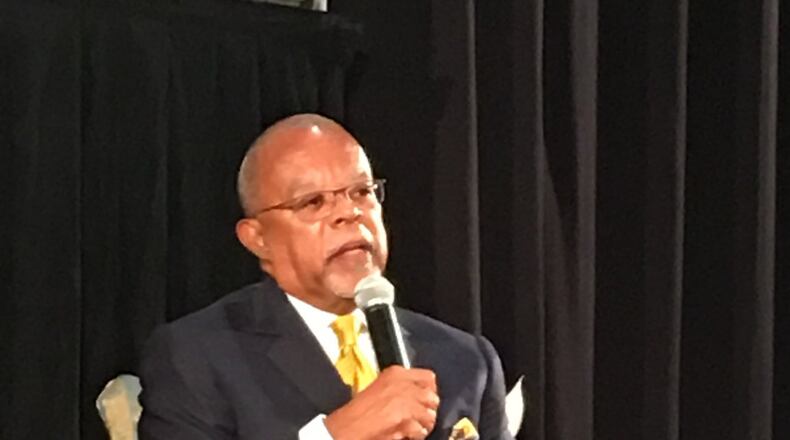There may not be a better authority on race in America than Harvard University professor Henry Louis Gates.
He is the creator of a recent PBS documentary, “Black America Since MLK: And Still I Rise,” that examines how African Americans have fared since the death Martin Luther King Jr.
It ponders what King might think about the election of former President Barack Obama, the state of black families torn by mass incarceration and the clashes between communities and police in Ferguson, Missouri, Baltimore and Cleveland after the deaths of unarmed black males at the hands of law enforcement. It airs regularly on PBS.
I got the chance to hear Gates discuss his work on Monday during a lecture at Furman University.
Gates concludes that fear, fractured conversations about race and a paucity of deep thinking contributes to what we see now: fastidious and constant coverage of racial flashpoints, a sea of commentary and little devoted to solution seeking, which requires extended, structured conversations aimed at answers. In short, he hears plenty of talk but very little talk of solutions and not enough effort to get to the root causes of the racial animus in our nation.
Also, Gates thinks our country should spend more time talking about the economic underpinnings that might be fanning racial hostility and feeding persistent gaps in wealth and wellness between white America and racial minorities, particularly African-Americans.
It hard not to agree with Gates.
Fruitful conversation about something as complicated as race requires that we in the media to go beyond business as usual.
The Atlanta Journal-Constitution has done that. The newspaper this year created a team to go deep on the issue of race, concentrating on how how the demographic shifts in Georgia might influence how we live together.
Called RE:Race, this project has so far:
- Analyzed if and when every Georgia county will tip to racial minorities becoming the majority of residents. By 2020 each of metro Atlanta's largest counties, those with more than 500,00 residents, will have more racial minorities than white residents.
- Examined how race will factor into the election of Atlanta's next mayor. A string of 40 years of African-American mayors could end this election cycle due mainly to the city's redevelopment and housing patterns that have attracted more young white professionals and resulted in a smaller proportion of African-American voters. Reporters Ernie Suggs and Leon Stafford brought to life data which affirmed that the Atlanta of 2017 is far different than the one that elected Maynard Jackson, Kasim Reed and every mayor in between.
- Found and featured a group of solution seekers who are taking on the task of closing the understanding and communication gap between black and white Christians.
I am especially proud of the story penned by Rosalind Bentley on the two Roswell churches, one predominately black, one predominantly white, who have spent the better part of a year holding a series of discussions and learning more about what they should do to close the racial divide. A couple of pastors and parishioners here in Georgia are providing a template for all communities of faith to find common ground.
Where we will pivot next is the economy and, more broadly, what we call the arc of opportunity. The ticket to the middle class and economic stability, as much as it can be found in an economy that is steadily shifting, is education and home ownership. RE:Race will spend some time this fall examining both and identifying how disparities in both contribute to some of the stubborn wealth gaps Gates pinpointed.
I found this surprising. Gates said the poverty rate for African-Americans children was 41 percent when King was killed in 1968. Today, the poverty rate, despite all of the evidence of African-American success, especially in a place such as Atlanta, has barely moved.
About 38 percent of African-American children are born into poverty today.
Gates says one of the remedies is affirmative action, a complicated a difficult topic to discuss.
He says it’s important that members of the media do a better job of explaining what affirmative action is and how it might apply to jobs and college admissions. For example, Gates said there is a deep misunderstanding of how college admissions work that must resolved before even starting a meaningful conversation about affirmative action.
“We admit about 1,600 kids into Harvard each year and people think it’s like the Boston Marathon where the top 1,600 finishers get in,” Gates said.
College admissions, Gates explained, are not that simple. Once legacies and athletes and others with preferred admissions claim seats, then the competition among those without such preferences is intense. And it is made so because seats are claimed at the beginning by someone given an advantage.
But even talk of such advantage is difficult, especially when the what we call the arc of opportunity is increasingly stalling for white Americans.
Gates thinks the exhibition by white supremacists and Nazi groups in Charlottesville recently is a symptom of a larger economic problem. Hate, Gates said, is constant, so he was not surprised to see the protest, counterprotest and the violence. A woman counterprotesting the hate groups was killed by one of their allies when he drove his car through a crowd of people.
“Open up the floorboards of western culture and there were two strains of hate: one is antisemitism the other is anti-black racism,” Gates said.
But there was more there, he said.
“What I saw was fear,” Gates said. “… we live in a complicated economy, we live in a complicated world. … We need to educate people about a new economic reality. We have to keep people from demonizing each other.
Gates said that happens through honest conversation. The Atlanta Journal-Constitution is on board.
Email Deputy Managing Editor Leroy Chapman Jr. at Leroy.Chapman@AJC.com
About the Author
Keep Reading
The Latest
Featured


